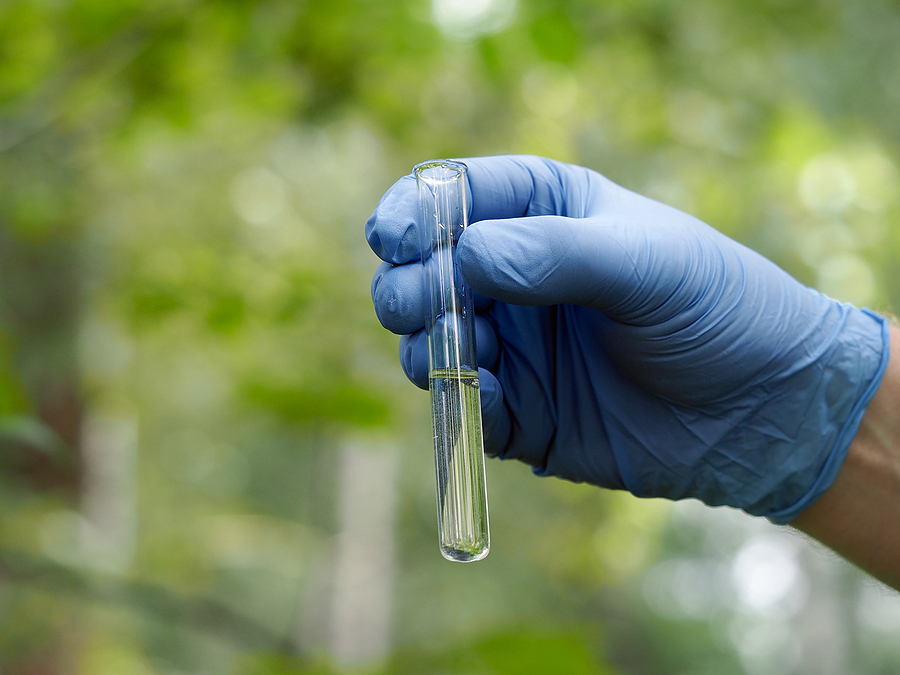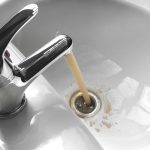Ensuring safe drinking water is essential for health and well-being, especially for those relying on well water. Understanding the risks of lead contamination is crucial, as lead is a hazardous substance with severe health implications, particularly when it contaminates drinking water Knowing how to detect, address, and prevent contamination is vital for anyone using well water.
How Does Lead Enter Well Water?
Lead is a naturally occurring element found in the earth’s crust. In certain geological areas, lead deposits can leach into groundwater, contaminating wells. While natural contamination is less common, it remains a potential source. Aside from these, there are other ways that lead in well water can present itself.
Plumbing Materials
Historically, lead was widely used in plumbing materials, including pipes, solder, and fixtures. Over time, these materials can corrode, releasing lead particles into the water supply. This is particularly problematic in older homes with aging plumbing systems.
Industrial and Agricultural Activities
Industrial activities, such as mining and manufacturing, and agricultural practices that use lead-based pesticides or fertilizers can contribute to lead contamination. Runoff from these activities can seep into groundwater, affecting well water quality.
Health Risks of Lead in Well Water
Effects on Children
Children are particularly vulnerable to lead exposure. Even low levels of lead in drinking water can affect brain development, resulting in lower IQ and cognitive abilities. Long-term exposure can cause learning disabilities and decreased academic performance.
Lead exposure in children has also been linked to behavioral issues, including attention deficit hyperactivity disorder (ADHD), aggression, and antisocial behavior. These effects can have lasting impacts on a child’s social and emotional development.
Effects on Adults
In adults, lead exposure can lead to increased blood pressure and hypertension, raising the risk of heart disease and stroke. Chronic exposure can have cumulative effects on cardiovascular health. The kidneys filter toxins from the blood, and prolonged lead exposure can impair kidney function resulting in chronic kidney disease and other renal complications.
Long-Term Health Implications
Long-term exposure to lead, even at low levels, can cause significant health issues. It can lead to anemia, reproductive problems, and decreased bone density. The accumulation of lead in the body over time can exacerbate these health risks, making prevention and mitigation crucial.

Testing for Lead in Well Water
Regular testing of well water is essential to ensure its safety. Lead contamination can go unnoticed without proper testing, as it is colorless, tasteless, and odorless. Annual testing is recommended to monitor water quality and detect any changes that may indicate contamination.
Professional Testing Services
Professional water testing services provide accurate and comprehensive analysis. These services collect water samples and test for various contaminants, including lead, using advanced laboratory techniques. Results are typically detailed, providing information on contaminant levels and potential sources.
DIY Testing Kits
DIY testing kits are available for homeowners to test their well water for lead. These kits include instructions and materials for collecting water samples, which are then sent to a lab for analysis. While convenient, DIY kits may not be as accurate as professional testing services.
What to Do If Lead is Found in Your Well Water
If lead is detected in your well water, stop using it for drinking and cooking immediately. Use bottled water or an alternative safe water source until the issue is resolved.
Installing a certified water filtration system can effectively remove lead from your water supply. Options include reverse osmosis systems, distillation units, and specialized filters designed to remove heavy metals. If your plumbing system contains lead pipes or fixtures, replacing them with lead-free materials is needed. This eliminates the source of contamination and prevents future lead leaching.
Preventing Lead Contamination
Proper Well Construction and Maintenance
Ensuring that your well is properly constructed and maintained can prevent lead contamination. Use lead-free materials for well components and regularly inspect the well for signs of wear or damage.
Safe Use of Chemicals and Materials
Avoid using lead-based chemicals and materials near your well. Opt for environmentally friendly alternatives and properly dispose of hazardous substances to prevent them from seeping into the groundwater.
Regular Inspection and Upkeep
Regularly inspect your well and plumbing system for signs of corrosion or wear. Promptly address any issues to prevent lead from contaminating your water supply. Scheduled maintenance by a professional can help identify and mitigate potential problems.
Choose A1 Well Drilling for Expert Lead Detection and Prevention
Ensuring the safety and purity of your well water is essential for the health and well-being of your family. A1 Well Drilling is the best choice for detecting and preventing lead contamination in your well water. With over 30 years of experience, our team of experts provides comprehensive testing, reliable solutions, and ongoing maintenance to keep your water supply safe.
At A1 Well Drilling, we understand the serious health risks associated with lead in well water. Our professional testing services use state-of-the-art equipment to accurately detect lead and other contaminants.
Our commitment to quality and customer satisfaction ensures that you receive the best possible service. We take pride in our knowledgeable technicians and their ability to address any well water concerns efficiently and effectively. Trust A1 Well Drilling to protect your water supply and provide peace of mind. Contact us today to schedule a water test or to learn more about our lead remediation services.
Lead in Well Water FAQs
What are the common sources of lead in well water?
Common sources of lead in well water include natural deposits, corrosion of lead-containing plumbing materials, and contamination from industrial and agricultural activities.
How does lead affect children’s health?
Lead exposure in children can cause developmental issues, such as lower IQ and cognitive abilities, as well as behavioral problems like ADHD and aggression.
How often should well water be tested for lead?
Well water should be tested for lead at least once a year to monitor water quality and detect any changes that may indicate contamination.
What should I do if lead is found in my well water?
If lead is detected in your well water, stop using it for drinking and cooking immediately. Use an alternative water source and consider installing a certified water filtration system or replacing lead-containing plumbing.
How can I prevent lead contamination in my well water?
Prevent lead contamination by ensuring proper well construction and maintenance, using safe chemicals and materials, and regularly inspecting your well and plumbing system for signs of corrosion or wear.






